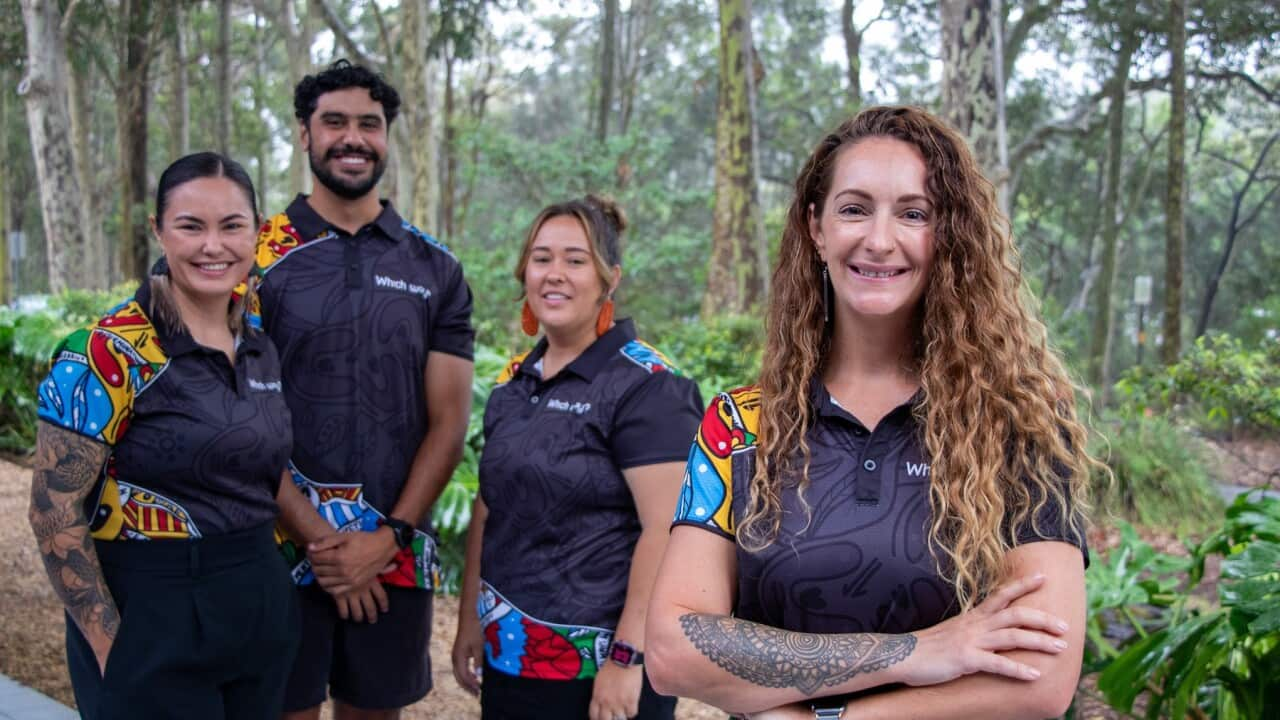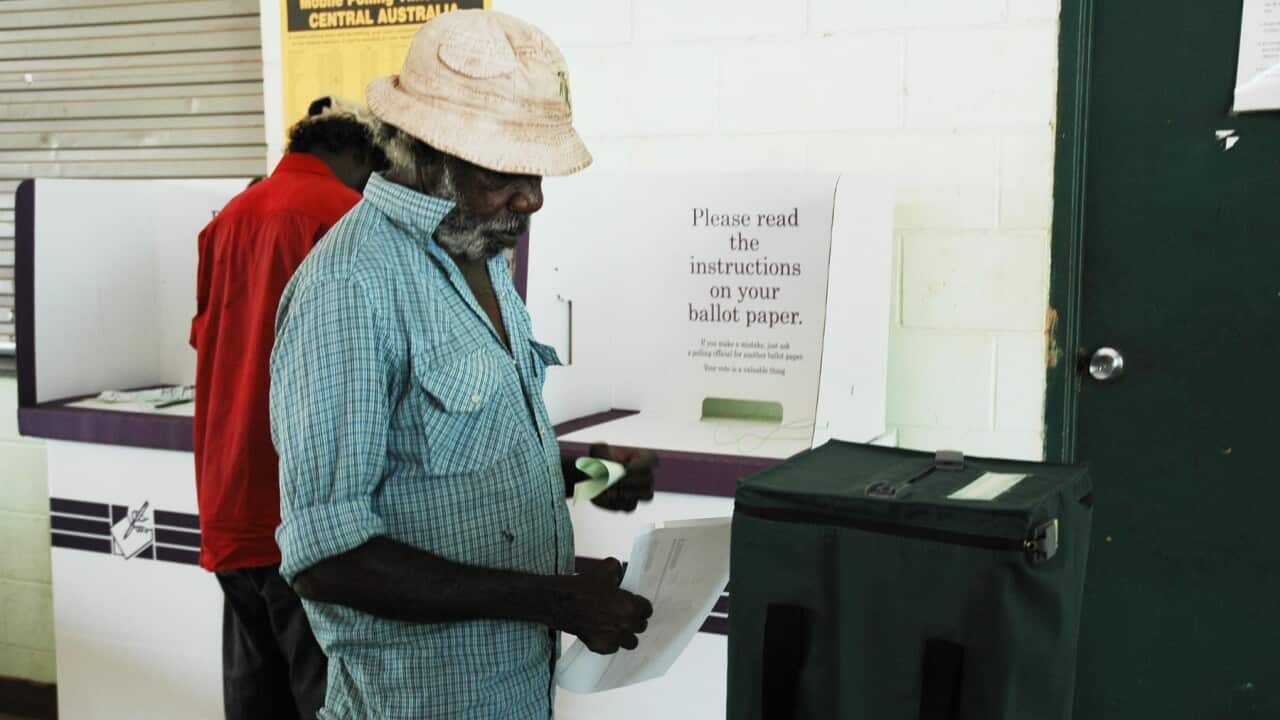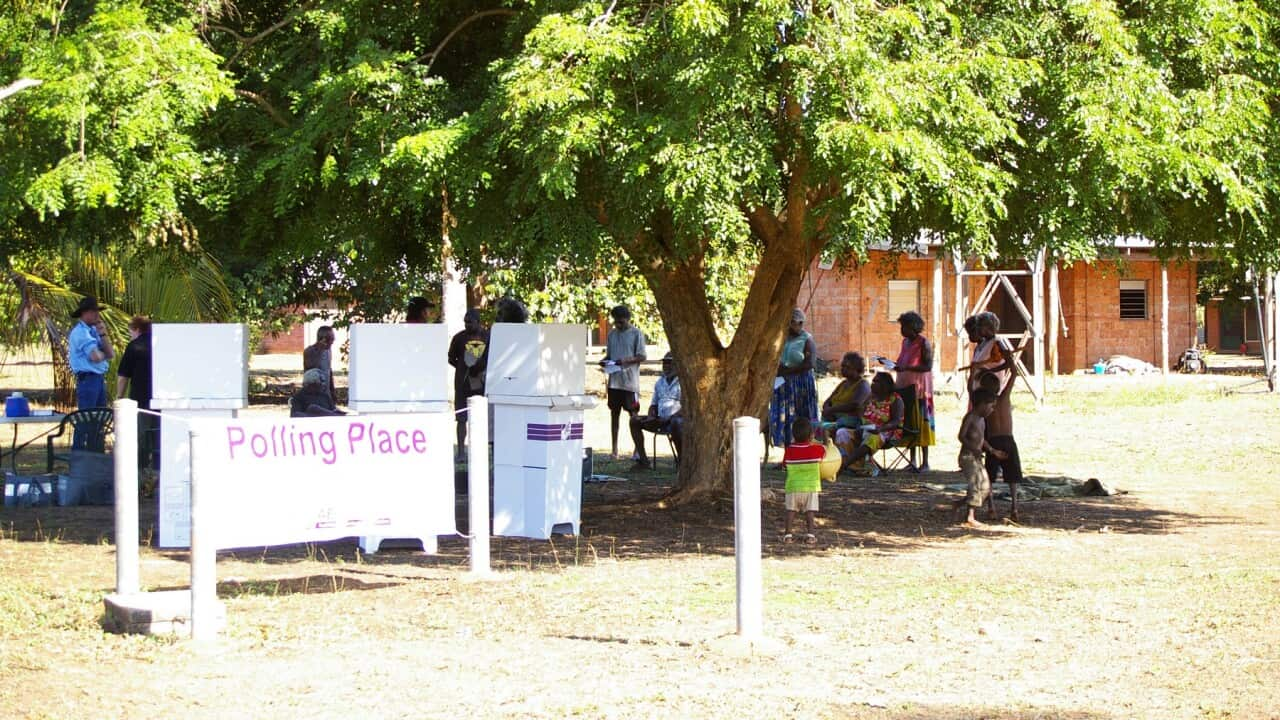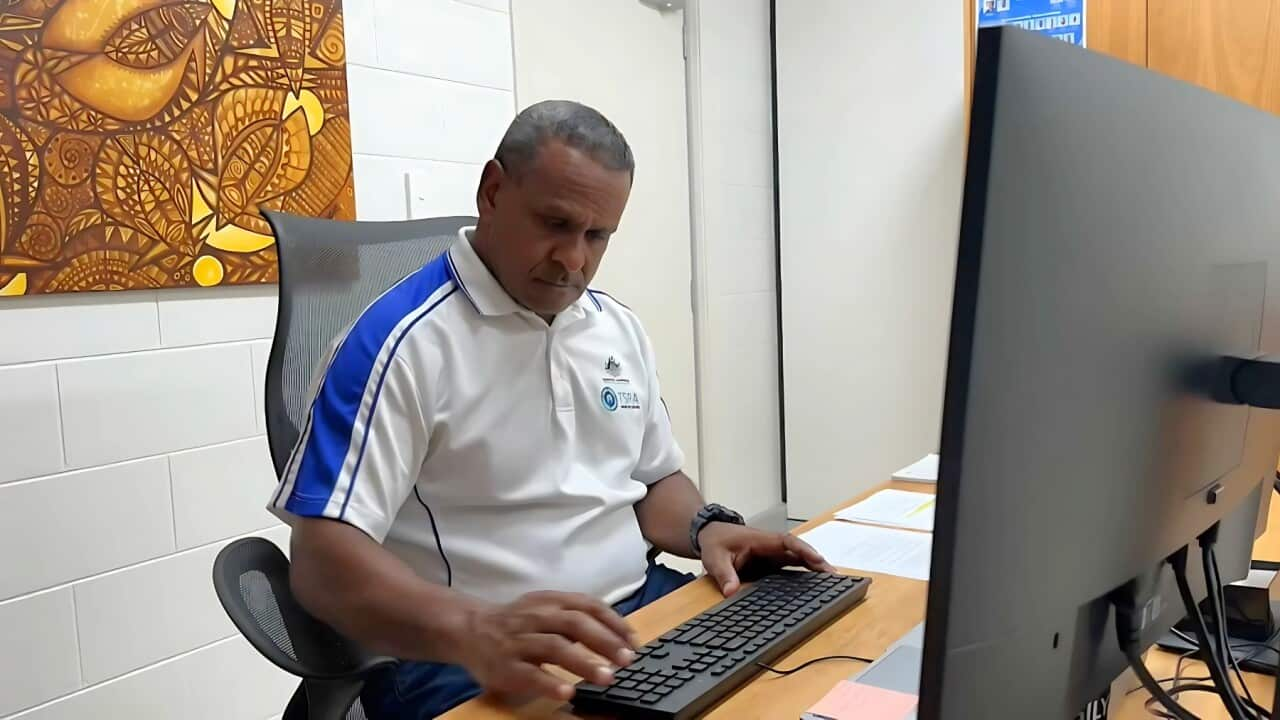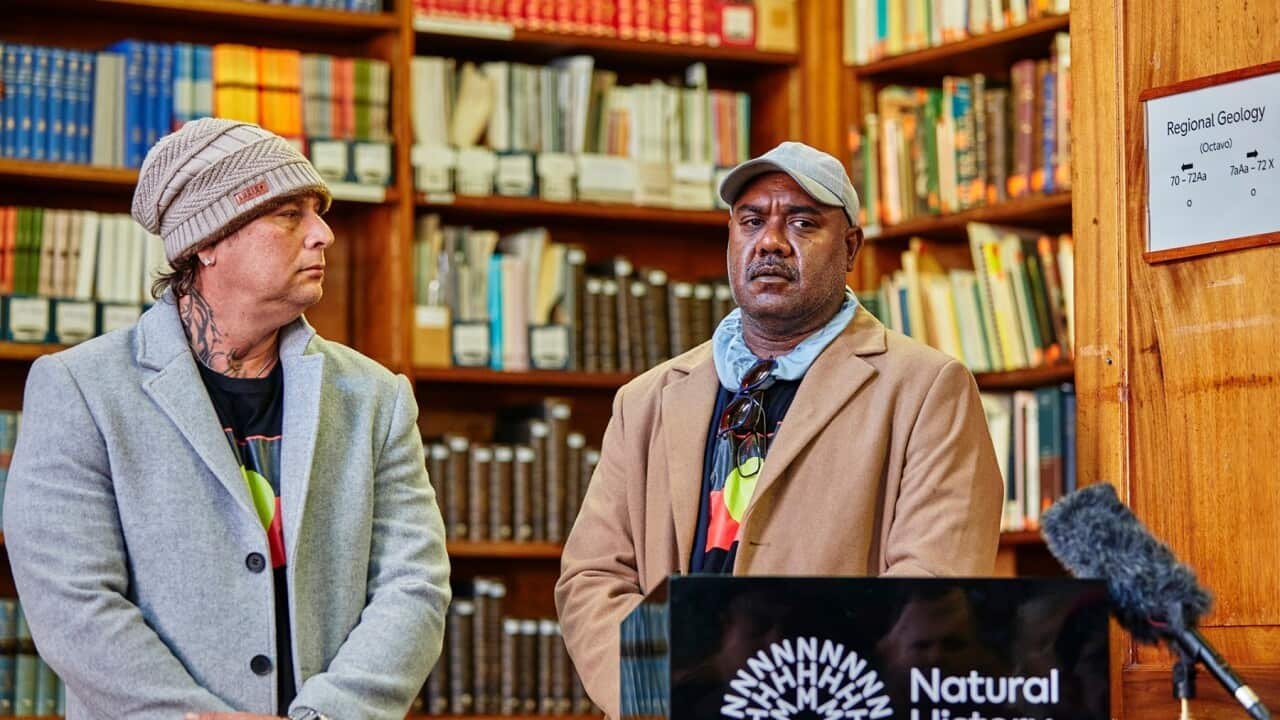TRANSCRIPT
Last October, more than 40,000 people descended on Wiradjuri country in Bathurst over four days for the Koori Knockout.
It's a rugby league competition that brings together Aboriginal and Torres Strait Islander teams from communities around New South Wales.
Tom Calma is the National Coordinator for Tackling Indigenous Smoking, and he told NITV the Knockout's major sponsor wanted it to become smoke- and vape-free, an idea he fully supported.
"Because it's in the interests of our mob. We want to stay healthy. We want to stay fit. We want to lead long lives. we want to be able to transfer our languages, our cultures, our knowledges, on to our young ones."
The reason for the focus on smoking and vaping is clear: smoking remains the leading preventable cause of chronic disease and death among Aboriginal and Torres Strait Islander people, accounting for nearly a quarter of the total health burden gap.
Making significant Indigenous events smoke-free is not the only initiative encouraging people to get rid of their cigarettes.
There's also a program at the University of Newcastle, led by Wiradjuri woman Associate Professor Michelle Kennedy.
"So the failure of the health system is that we have these wonderful, glossy guidelines that tell you what the best way is, to do smoking cessation. But then when I turn to our people and say, is this what you get? They say, nope. That's the failure. The failure is that we're not looking at a problem, and for smoking being the biggest preventable cause of death and disease, we should be putting so much effort into supporting people to quit, because we know that affects so many other health burdens of disease."
To that end, the professor and her team have designed a box called The Which Way? Quit Pack.
Inside that box is combination Nicotine Replacement Therapy items – also known as NRT – like patches and gum.
They've run two trials of the pack so far.
Professor Kennedy says the success of both trials has convinced her that it was wrong to assume the uptake of quit smoking programs would be low.
“What we found was one, we ran out of money so fast. The first trial was meant to go for about 18 months – and we had money for 90 Aboriginal and Torres Strait Islander people. And in three months, we had 165 people sign up. Nearly everyone wanted nicotine replacement therapy, and we quite literally couldn't keep up with the demand. We ran out of money. We had to go find little pieces of money here, there and everywhere to keep it going. And so that really shaped and changed what we thought we knew about what Aboriginal and Torres Strait Islander people wanted.”
Quit rates reached 34 per cent at six months of the trial – far higher than previous smoking cessation efforts with Indigenous communities.
She says the next trial had even higher demand.
“And the next trial, in eight months, we had nearly 800 Aboriginal and Torres Strait Islander people sign up to the study and start their journey to quit smoking and vaping. So we've learned that Aboriginal and Torres Strait Islander people want support to quit smoking and vaping, that they do want access to nicotine replacement therapy, and that when they're given that nicotine replacement therapy in combination – which is where you would wear a patch and have gum – that our people do successfully quit."
The team at the University of Newcastle say this isn't just about public health: it's about culture, family, and community survival.
Professor Kennedy says the packs are woven with cultural pride.
Literally.
Besides the Nicotine Replacement Therapy, each box includes community-developed resources, links to government support apps like My QuitBuddy, videos on managing cravings, and even socks in the colours of the Aboriginal flag, a partnership with Aboriginal social enterprise Clothing The Gaps.
“We also always add something that builds pride in culture. And so we partner with Clothing The Gaps, which is an Aboriginal social enterprise down in Naarm (Melbourne). And we have – one of the favourites is socks – and they have red, black and yellow socks in their box as well. So into the new study, we'll be making some new brochures, a range of new videos and content to explain what to do when you get a craving, working through things like your smoking triggers, addressing previous challenges in quitting and how people can think about those and draw on those to make their own plans for the future. So the box will be new and improved for this new trial.”
The program has just received a $4.7 million grant to go national.
It means the kits will evolve even further, offering tailored content on smoking triggers, planning for relapses, and helping people build sustainable quitting strategies.
But Associate Professor Kennedy says while the materials are important, it’s the way they’re delivered that matters - and by whom.
“We have a team (that's) I don't think like any other in health research. So I'm a proud Wiradjuri woman, and I've grown up here in the Awabakal and Worimi community, so very connected to the community here, even though it's not my traditional community. But one of the biggest and best things about our project is that everyone on the project is Aboriginal and Torres Strait Islander and from diverse backgrounds, not just in terms of cultural backgrounds or community backgrounds, but even the skills and expertise that our people bring. There's a lot more to being really good at research than just having a PhD.”
Among her team are social workers, psychology students, nurses, and tobacco treatment specialists.
Some started out just looking for casual work and are now leading cutting-edge research.
Their faces are used in promotional material, and that visibility builds trust.
“We've seen in the most recent trial of this that using the faces of our team in all of our promotion on our website builds that sense of trust for the community, because most Aboriginal and Torres Strait Islander people don't want to do research. But this study is so different because it's us. They have trust in us. They know who's doing all of the work behind it, and who's going to take on the work to make this a reality for the lives of our people into the future, beyond just the funded research trial.”
A study by the Australian Institute of Health and Welfare found that from 2002 to 2018–19, smoking rates among Aboriginal and Torres Strait Islander people declined, particularly among youth.
Among 15–17-year-olds, the smoking rate dropped from 33 per cent to 13 per cent, with 85 per cent having never smoked by 2018–19, up from 72 per cent in 2008.
Overall smoking among Indigenous Australians aged 15 and over fell from 48 per cent to 41 per cent, and daily smoking dropped from 45 per cent to 37 per cent.
Still, they remained 2.9 times more likely to smoke than non-Indigenous Australians, with rates ranging from 29 per cent in major cities to 58 per cent in very remote areas.
Kayden Roberts-Barker is a Wiradjuri man and Aboriginal Research Officer at the University of Newcastle, and is on Dr Kennedy's team.
He says quitting is harder in rural and remote communities due to high costs and limited access to support.
"When you've got rural and remote people that are trying to access support options, and you've given them for instance, a pack of smokes is $50 , but then you've got an NRT product that's out there, but then that's $60, it doesn't really entice them to want to quit smoking because of their behaviour change but also the accessibility to the support options that are out there, which I think is a big barrier for our people to access those support options within the small, rural and remote communities."
The Institute's study was conducted before vapes were widely available.
Mr Roberts-Barker says many in Indigenous communities now consider cigarettes to be un-cool, with vapes the new cool.
"I think the traditional way of smoking is kind of that yucky smell, the segregation, I guess you could say that smoking has, where is vaping is definitely more acceptable within the community."
Many believe that vapes are better for one's health than cigarettes.
Dr Kennedy says that is a misconception.
“It's not true, and it's not people's fault either. You know what less people talk about is the influence of the tobacco industry. You know, there is a whole industry behind this that are making billions of dollars, trillions of dollars, through killing people, which is a wild concept, that their most successful marketing strategy is that they end up killing people and harming their health. But the tobacco industry really came in hard with vapes, and we've got more and more researchers calling this out. And we need to remember – the tobacco industry will even partner with researchers to do a study to say that something is safer, so it's not an individual person's fault.”
